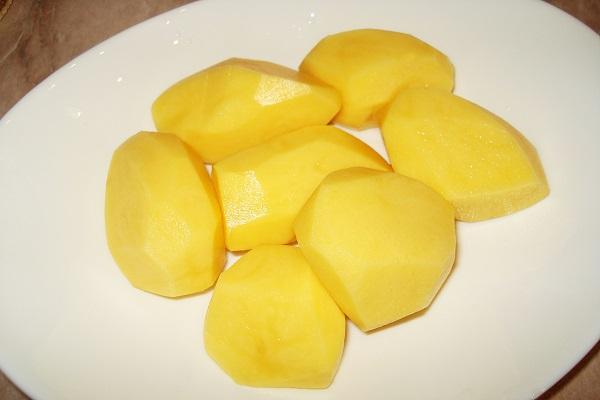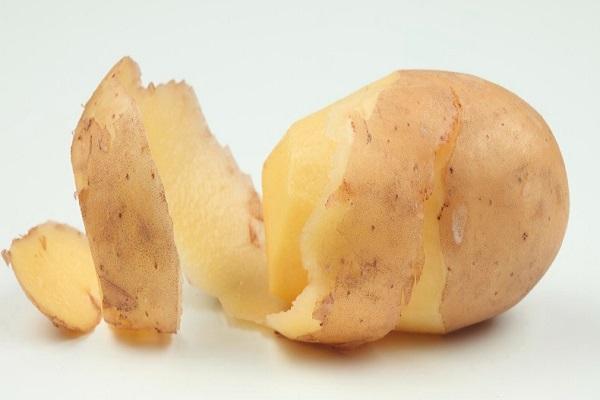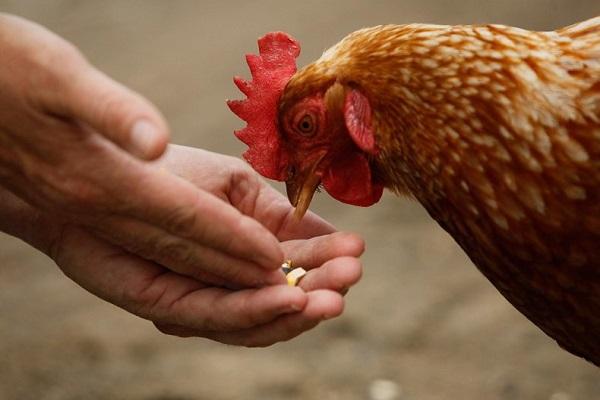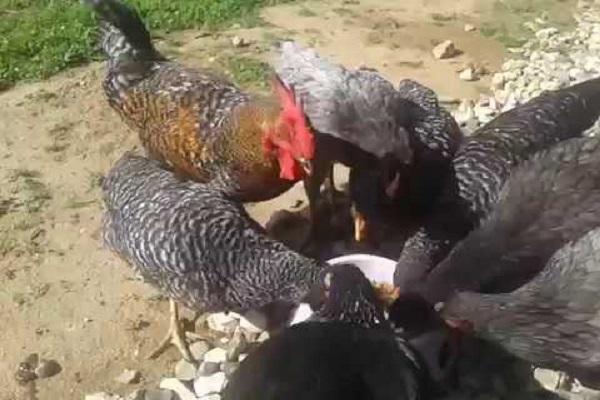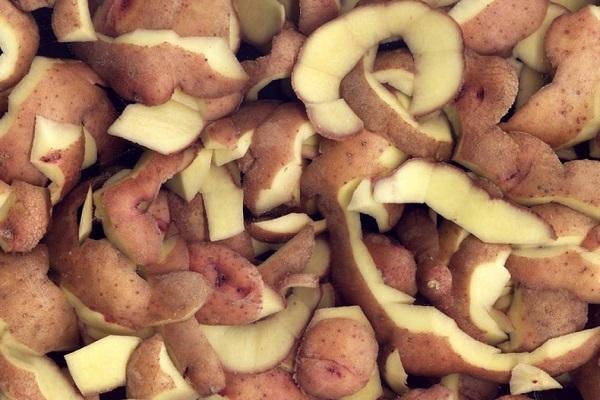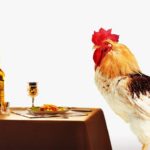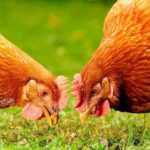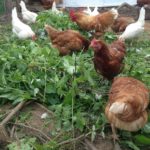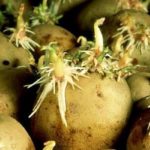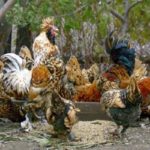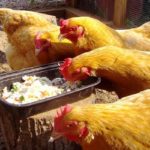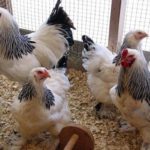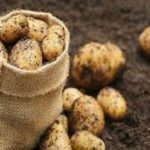Wanting to diversify the diet of birds, many wonder whether it is possible to feed raw potatoes to chickens. After all, laying hens eat most vegetables fresh. You can feed potatoes to birds; it makes them gain weight faster. True, the tubers need to be boiled first. It is prohibited to give raw potatoes to chickens. Such food will take a long time to digest and can lead to digestive tract upset.
Is it possible to feed chickens potatoes?
The main food for birds is crushed grain and mixed feed.True, such products do not contain all the beneficial substances that laying hens need. Poultry farmers recommend using vegetables as additional feed. Potatoes are rich in minerals and carbohydrates. It can be given to chickens starting from 15-20 days of life.
Raw tubers
It is not recommended to feed raw potatoes to birds. This is very heavy and rough food, it is slowly digested and poorly absorbed. After eating raw potatoes, laying hens may experience vomiting or diarrhea.
Fresh potatoes are poorly broken down in the digestive tract and can lead to atony of the goiter and stomach.
Boiled potatoes
Rejected small tubers can be used as bird feed. Before giving potatoes to laying hens, they need to be washed and boiled. Boiled potatoes are easily digested by the bird's stomach. True, it needs to be introduced into the chickens’ diet gradually.
Chickens at 15-20 days of life are first given 5-10 grams of boiled potatoes. By the age of one month, the dosage is increased. The norm for an adult laying hen is 40-50 grams per day. It is not recommended to give larger amounts of this food.
When feeding, the emphasis is not on volume, but on variety. The more vegetables and grains are included in the daily diet of laying hens, the better. Usually boiled potatoes are mashed, mixed feed, crushed grains or bone and fish meal are added. True, chickens are more willing to eat whole boiled tubers.
Potato peelings
You need to be very careful when feeding your chickens potato waste. Green cleaning should be discarded immediately. After all, they accumulate a large amount of corned beef. This poison can cause poisoning. The peelings themselves are roughage food. Birds usually refuse such food. Peelings without green spots can be boiled, chopped and given to laying hens.
What impact can it have?
Boiled potatoes enrich broiler diet vitamins, minerals, amino acids, carbohydrates. Once inside, potatoes work like an alkali: the acidic environment in which most pathogenic bacteria and fungi develop is neutralized. Potatoes improve the functioning of the digestive system, normalize metabolism, and improve immunity.
Boiled tubers should be given to laying hens every day. Birds fed on such food gain weight faster, get sick less, and lay eggs better.
Potatoes are considered an essential component in the diet of chickens in winter.
Advantages and disadvantages of including potatoes in the diet
This vegetable is considered a low-calorie product. 100 grams of potatoes contain only 77 kilocalories. Potatoes contain the most carbohydrates (almost 85 percent). Protein is only 10.5 percent. This vegetable is not rich in vitamins. Root vegetables contain some vitamin C and B. But potatoes are rich in macro- and microelements.
The vegetable is recommended to be included in the diet of birds with rickets, joint diseases, pecking, and calcium deficiency. Potassium is highest in potatoes. This macroelement normalizes metabolism, improves the functioning of the nervous, muscular, and vascular systems. The calcium, phosphorus, and silicon present in the composition go towards the formation of bone and muscle tissue.
Potatoes are considered an alkaline food. It reduces acidity and normalizes digestion. If you feed chickens boiled potatoes, they gain weight faster and become larger. Laying hens increase egg production.
What kind of potatoes should you not feed chickens?
Fodder potato varieties are used to feed laying hens. They have a higher content of protein, minerals and carbohydrates that are beneficial for birds.True, if there is no fodder, the chickens can be given food potatoes, that is, those that people eat.
The bird is fed tubers that are unsuitable for seed purposes. Usually small or damaged root crops are used as chicken feed. The potatoes must be washed, rotten tubers are discarded, and then boiled in a sufficient amount of water, otherwise a paste will form.
Under no circumstances should laying hens be given root vegetables with green skin. Such potatoes are harmful to birds, both raw and boiled. Green potatoes contain a poison of plant origin - solanine. This substance is found in high concentrations in potato tops. Heat treatment has no effect on solanine. If a chicken eats green potatoes, it may experience diarrhea, vomiting, and cramps. It is better to avoid using low-quality feed to avoid poisoning your poultry.
You should not feed your chickens sprouted potatoes. Glycoalkaloids are formed in potato sprouts, which affect the liver and nervous system of laying hens, and sometimes lead to their death. Sprouted potatoes can be used as bird feed after removing all the sprouts.
Laying hens are not given potato tops, unripe and young green tubers. Ripe potatoes can be fed to chickens, but only boiled. Potatoes that have been stored in the cellar for a long time have minimal levels of solanine. This vegetable is best suited for bird feed.

